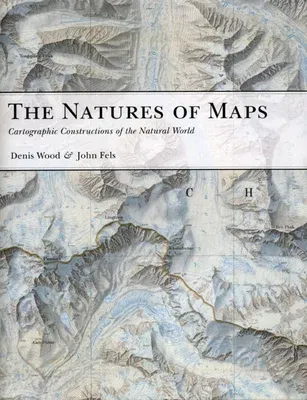Cartographers have known for decades that maps are far from objective
representations of the world; rather, every map reflects the agendas and
intentions of its creators. Yet that understanding has had almost no
effect on the way maps are viewed and used by the general public. In
The Natures of Maps, cartographers Denis Wood and John Fels present a
compelling exploration of a wide range of maps to answer the question
of, as they put it, why maps have "gotten away with it."
To answer that question, the authors turn to a category of maps with a
particularly strong reputation for objectivity: maps of nature. From
depictions of species habitats and bird migrations to portrayals of the
wilds of the Grand Canyon and the reaches of the Milky Way, such maps
are usually presumed--even by users who should know better--to be
strictly scientific. Yet by drawing our attention to every aspect of
these maps' self-presentation, from place names to titles and legends,
the authors reveal the way that each piece of information collaborates
in a disguised effort to mount an argument about reality. Without our
realizing it, those arguments can then come to define our very
relationship to the natural world--determining whether we see ourselves
as humble hikers or rampaging despoilers, participants or observers,
consumers or stewards.
Richly illustrated, and crafted in vivid and witty prose, The Natures
of Maps will enlighten and entertain map aficionados, scholars, and
armchair navigators alike. You'll never be able to look at Google Maps
quite the same way again.

